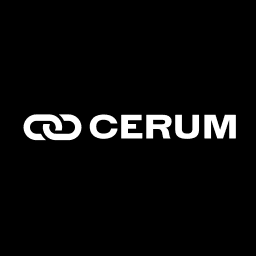Bootstrapped IT Automation Firm Hits $40K/Month


Business Description
Table of Contents
Navigate through the case study sections
Executive Summary
Case Study Content
Introduction
Cerum Solutions started with a simple experiment: building no-code apps on Bubble.io. The early results revealed that the market was crowded and the profit margins were low. Rather than chasing every shiny AI tool, the founder recognized that businesses needed practical automations that solved everyday inefficiencies. Within months, Cerum Solutions shifted gears from developing full-scale products to delivering targeted automations, like setting up Salesforce dashboards and custom CRM workflows, that clients could clearly value.
Finding Quick Wins
In the first six months, Cerum Solutions tackled straightforward tasks. They automated email sequences, integrated messaging bots, and built lightweight dashboards. Each project took a few days and delivered immediate results. This focus on quick wins not only shortened sales cycles but also built trust. Clients saw measurable improvements in lead response times and data visibility, making them willing to invest in more complex automations down the line.
Navigating Revenue Fluctuations
Revenue wasn’t steady at first. Some months hit $20K and others dropped to $10K. The founder wore many hats, developer, salesperson, and project manager, while worrying about when to hire. Every new hire was a risk, especially given the overhead of US-based developers. This uncertainty made it hard to plan for growth.
Smart Offshore Hiring
A turning point came with the first offshore developer on Upwork. After a few shaky hires, a skilled engineer from the Philippines proved reliable. Within a week, this developer was leading client calls and shipping code. By cutting out agency fees and working directly with talent in the Philippines and Latin America, Cerum Solutions reduced labor costs by over 50% while maintaining high quality. This approach paved the way for a new venture, Hire Seamlessly, aimed at connecting businesses with vetted technical talent.
Implementing SOPs
Delegation only works when processes are clear. Cerum Solutions invested time in writing concise SOPs and recording Loom videos. New hires could onboard in days rather than weeks, understanding exactly how to run dashboards or set up AI chatbots. This emphasis on repeatable processes freed the founder to focus on sales, marketing, and content creation instead of micromanaging every project.
Content-Driven Growth
Rather than paid ads, the team invested in tutorials, blog posts, and short videos explaining simple automation tasks. This content drove SEO rankings and earned referrals. Early offers included free eBooks and mini-courses on automating CRMs. As visitors consumed these resources, Cerum Solutions captured leads and nurtured them into paying clients. Within a year, the consultancy averaged $40,000 in revenue per month, with many clients on retainer.
Key Lessons Learned
The main takeaway is that solving small, visible problems often beats building elaborate products. Hiring directly offshore can cut costs, but only if you document processes and train team members. And finally, content marketing, tutorials, blog posts, and SEO, can be the most reliable way to attract B2B clients without hefty ad budgets.
Key Takeaways
- 1Targeting simple, high-impact automations often leads to faster client buy-in and quicker revenue compared to complex product builds.
- 2Creating concise SOPs and recording process videos can reduce onboarding time from weeks to days and improve overall quality.
- 3Directly hiring offshore talent and cutting out middlemen firms reduced labor costs by over 50% while maintaining strong output.
- 4Investing in content marketing, tutorials, blog posts, and eBooks, drove organic leads and referrals without paid ads.
- 5Focusing on one niche offer and delivering visible ROI in days shortened sales cycles and boosted customer trust.
- 6Transitioning from no-code experiments to practical automations helped Cerum Solutions reach $40K per month in revenue.
Tools & Technologies Used
Premium Content Locked
Subscribe to access the tools and technologies used in this case study.
Unlock NowHow to Replicate This Success
Premium Content Locked
Subscribe to access the step-by-step replication guide for this case study.
Unlock NowInterested in Being Featured?
Share your success story with our community of entrepreneurs.
Explore More Case Studies
Discover other inspiring business success stories

How Flippa Helped My Night Light Land a 6-Figure Sale Between Two Entrepreneurs
This case study details how Philippa, facing sleepless nights as a new mom, created My Night Light, an ecommerce brand f...
My Night Light

How The Broke Backpacker Scaled from $10/Day Travels to a $1M Global Travel Brand
From a shoestring $10-a-day journey in India to a multi-million dollar travel media brand, Will Hatton’s The Broke Backp...
The Broke Backpacker

Miracle Moo’s TikTok Takeover: $590K Monthly Success
Miracle Moo leveraged a network of TikTok content creators acting as ‘colostrum lovers’ to share authentic before/after ...
Miracle Moo